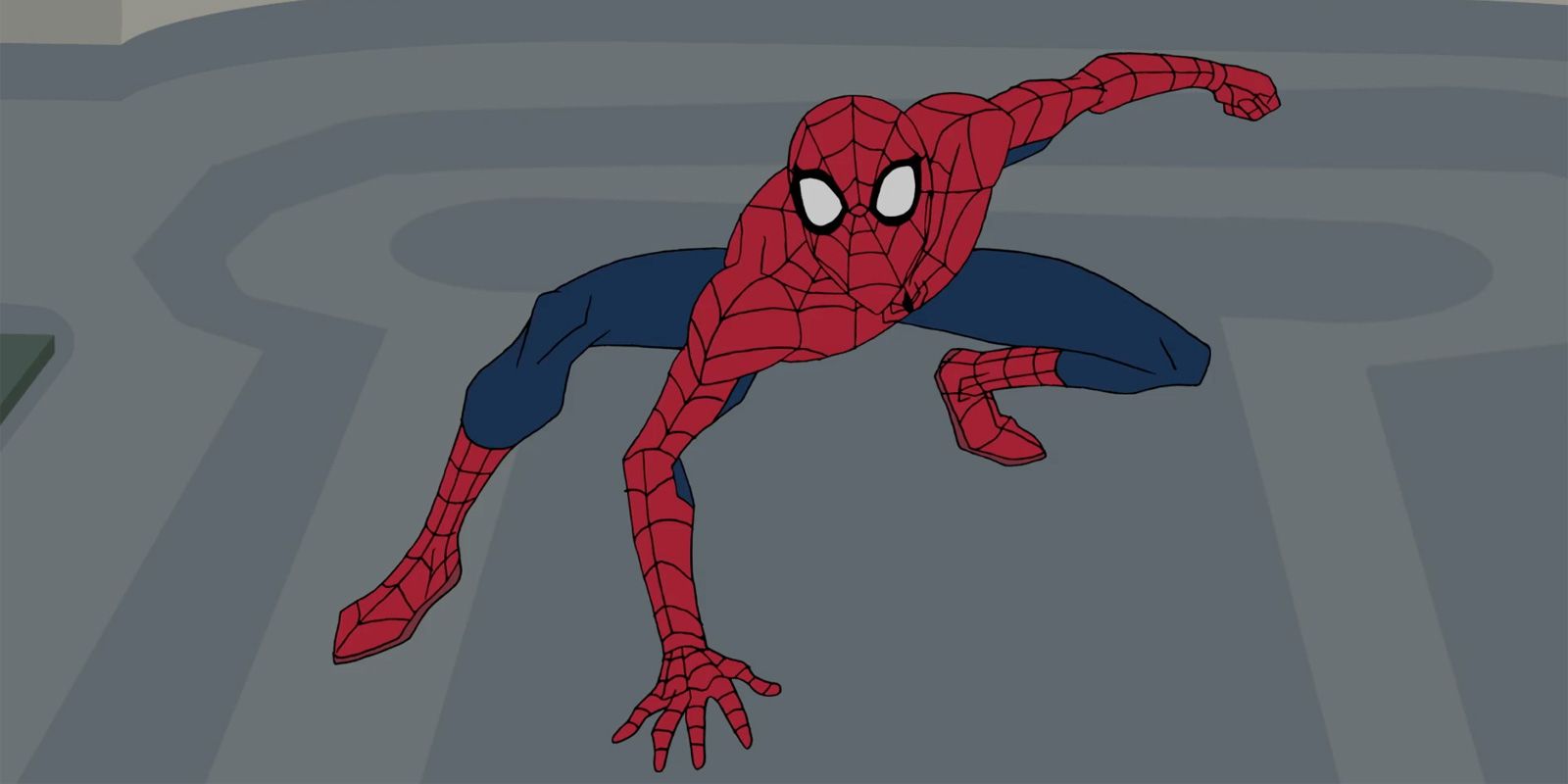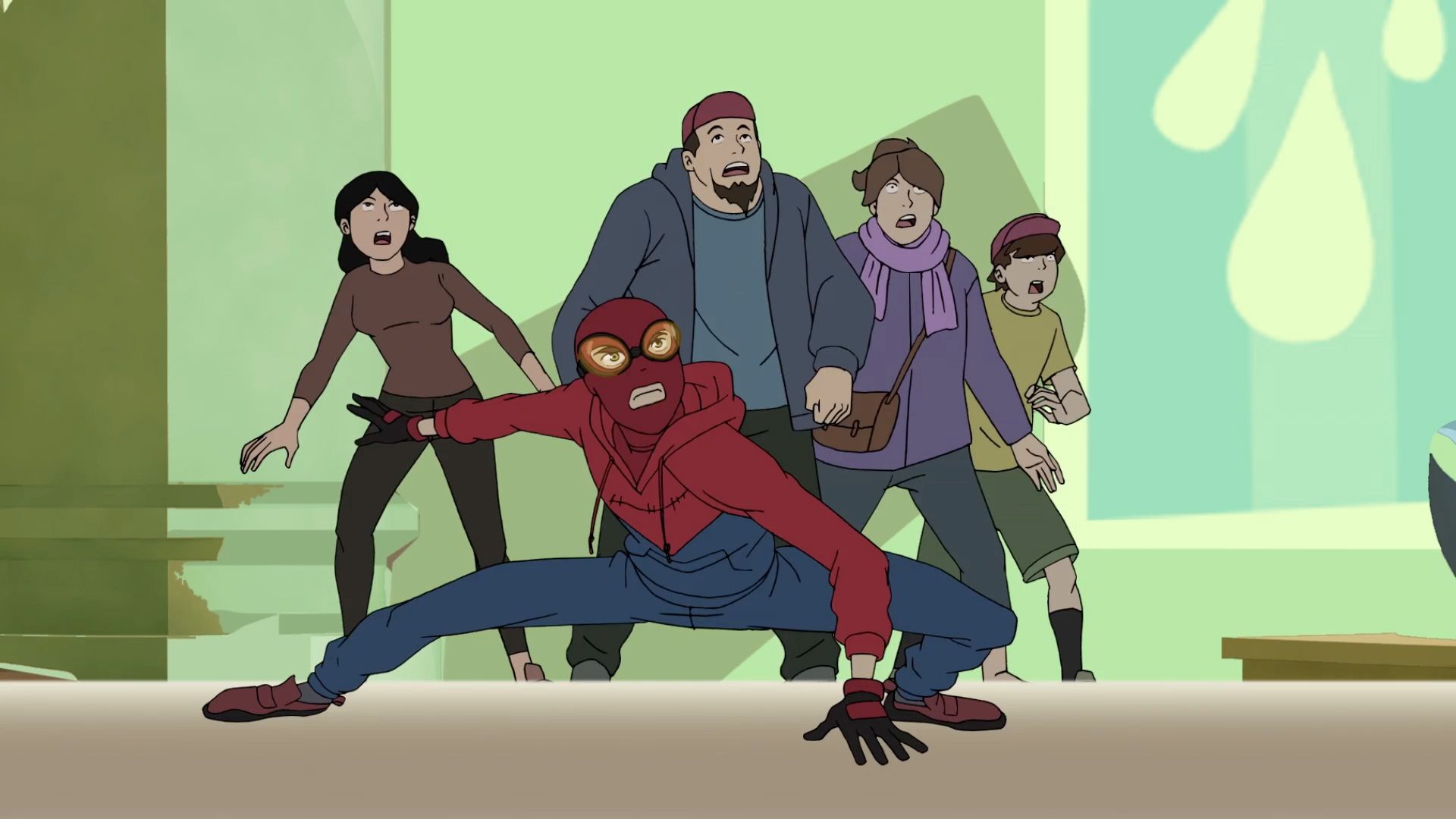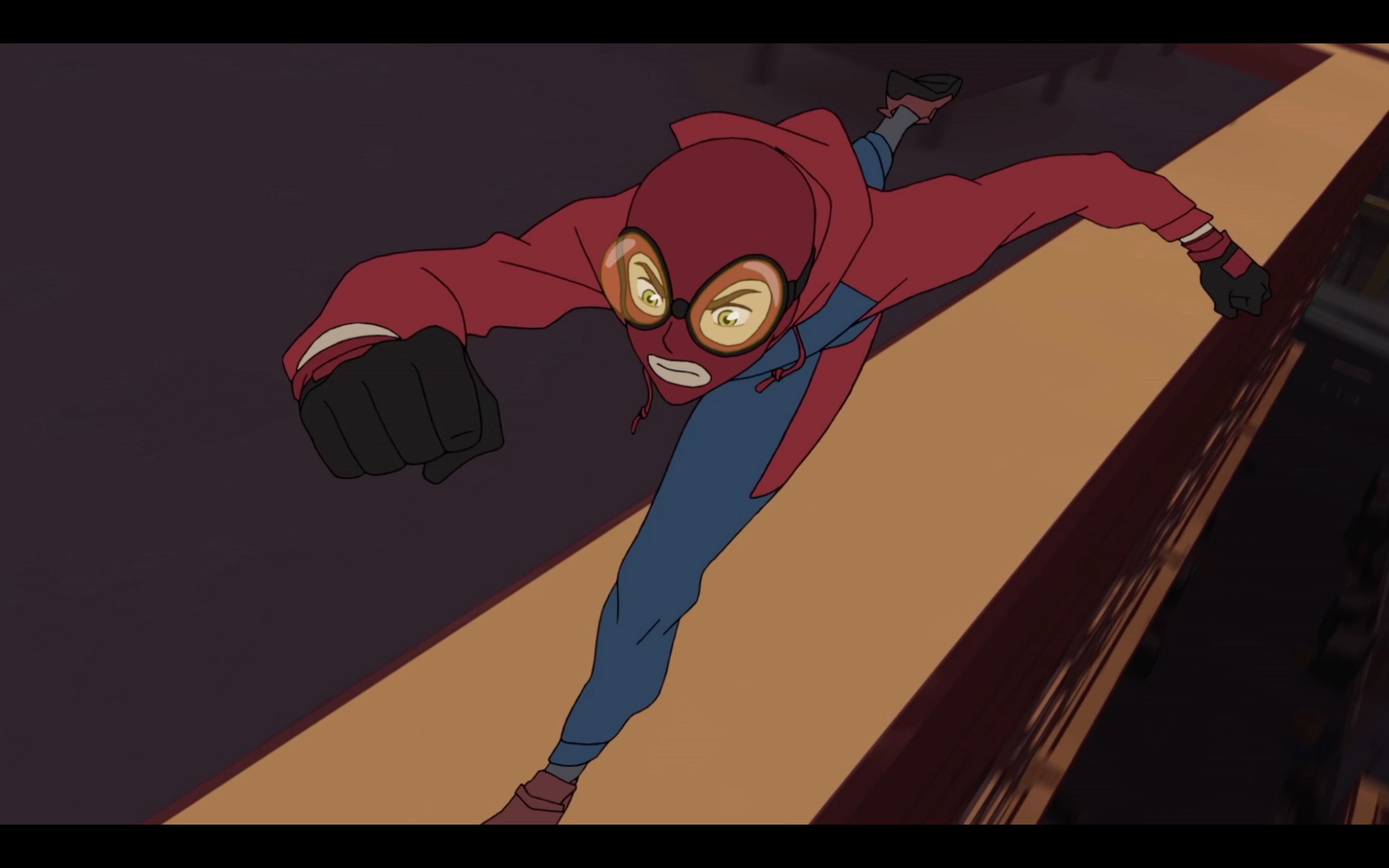Spider-Man returns to television sets later this month with the aptly named Marvel's Spider-Man, a new Disney XD animated series placing Peter Parker in high school, and in his early days as a superhero, reminiscent of both the earliest Stan Lee & Steve Ditko comic books and Spider-Man: Homecoming -- but with the twist that this time he's at Horizon High, a high-tech science high school where his classmates include Miles Morales, Gwen Stacy and Anya Corazon.
Horizon High is inspired by Horizon Labs, from Dan Slott's recent Amazing Spider-Man comics -- and Slott is as a consulting producer on the show, and fellow comic book veteran Kevin Shinick (Avenging Spider-Ma), is on board as a supervising producer. It shows that the series is taking inspiration from all eras of Spider-Man, with villains set to include Doctor Octopus, the Vulture, Jackal, Venom and more.
RELATED: EXCLUSIVE: Spidey Sense on Display In Marvel’s Spider-Man Animated Clip
Given that Ultimate Spider-Mam ended its 104-episode run just a few months back, CBR spoke with Cort Lane, Senior Vice-President, Animation & Family Entertainment at Marvel Entertainment, and Marsha Griffin, Vice President of Current Series and Development at Marvel Animation Studios, following a voice record earlier this summer about what makes Marvel's Spider-Man, the latest Spidey animated series aimed at a young audience, different, and how the show will emphasize relationships including Peter Parker and Harry Osborn (who, as the show picks up, leaves Horizon High at the same time Peter enrolls) and Peter Parker and Miles Morales, who both end up with Spider-powers sooner rather than later.
CBR: Marvel's Spider-Man launches just a few months after the long and successful run of Ultimate Spider-Man. When approaching the new series, what were some of the things you wanted to do with this series that wasn't a part of Ultimate? And was there anything that you're avoiding because it's something you already did and don't necessarily want to retread?
Cort Lane: There's some of that. There are specific storylines and characters that we're not going to do yet, and when we do do them, they will be portrayed quite differently. But for the most part, we understood that Ultimate Spider-Man, in some ways, was a Marvel Universe show. It had so many elements of the Marvel Universe -- villains from all over, lots of hero guest stars.
We saw that there was an opportunity for a back-to-basics show -- to even tell his origin story for a young audience who hadn't seen it in animation, and probably aren't allowed to see it in films, either. In taking that direction, we were very inspired by the earliest years of Spider-Man comics, where Stan [Lee] and Steve Ditko told a story about a relatable teen dealing with things far beyond his abilities and his understanding, just trying to do his best, and losing and winning and figuring it out. What would that look like today? What would be the technology and the settings and the characters and the environments that would be relevant for that teenager today?
Marsha Griffin: I think every time we looked at a story during this season, not that it hasn't been done in other seasons, but one of our primary motivating factors in every episode was, "What's the Peter story?" It's not just about the villain. It's not just about the action story that's driving it. We wanted to make sure that the emotional center of the story [was served], the relationship between Harry and Peter -- which forms the core of the season; how their friendship evolves and devolves, and basically is brought to the brink of not existing anymore.
We took a step back after every single one -- "This episode is about the Jackal," or "This is going to be the 'Spider-Island'" arc -- what's the Peter of the story? What is going on in Peter's internal world, with his friends, with his family? Always bringing it back to a story about people, and about things that kids can relate to. The struggle of keeping a secret; that what you do could put the people you love in danger. We were always trying to get back to that center.
You mentioned going back to Lee & Ditko and the earliest days of the Spider-Man comics, but the series also involves some of the newest additions to the Spider-Man canon -- specifically reimagining Horizon Labs as Horizon High, complete with Max Modell as principal. What was the inspiration for that? Dan Slott is notably credited as a consulting producer.
Lane: Oh, he's been involved, particularly with breaking stories early on.
The feeling was, that those have been some of the most successful stories in publishing in the last few years. By combining that early Lee/Ditko "teenager figuring it out perspective," and then combining that with some of the more relevant things with Horizon High and Max Modell as a mentor, provided a lot of story opportunities. There are great storylines built into all of that.
And frankly, having access to Horizon gave us an opportunity to give him access to a lot of tech. But he makes it himself. We didn't want it handed to him, we wanted him to create it and have the means to do that. The conflict that arises between him and Harry over him going there as Harry leaves created emotional complexity to the story.
Griffin: We wanted to lean in with all of the characters, [that] whether or not they have powers or not, they're still powerful. We don't just lean into the fact that Peter has Spider-powers. His scientific knowledge, whoever he was before he got the powers, is still an integral part of who he is as a hero. Leaning into the technology, leaning into his calculations, leaning into not just relying on something that was given to you, but relying on something you were born with.
Lane: And then watching the fun of him not quite doing it right on first. Figuring out the pressure setting on his webshooters is an ongoing thing in those beginning episodes, because that's something you have to figure out.
Curious to hear more about the role Miles Morales has here -- he's unpowered in at least the first couple of episodes, but that won't last for long. Since the show is just establishing Peter as Spider-Man, how does it balance introducing another Spider-Man character?
Griffin: Peter is just starting to master some of his own powers by the time that Miles winds up getting his powers, so Peter suddenly has to take on the role of a mentor, but it's a comedy of errors, because Peter's suddenly put in a position of having to be the guide to someone when he has not yet mastered his own [powers].
I think they kind of represent two sides of a hero. Peter is much more the rational, practical thinker; and Miles represents the other side of the situation, which is impulsive. Running into a building, not thinking about the consequences. That's how we play them. We get to see both sides of what it means, and the impulse that anyone would have when they get powers -- "I can fly, I'm just going to fly everywhere" -- when you don't take other things into consideration, or you just race in without thinking. Peter's the thinking side of the equation.
And I think they both have to learn something from each other over the course of the series. Peter has to learn to drop his guard, Peter has to learn to open up. Miles is willing to tell anybody that he has powers. Peter has to learn that sometimes keeping a secret may not be the best thing in the world, and Miles has to learn responsibility and tempering his brash nature from Peter. It's again showing the duality of a hero.
Lane: It's done in a way that sort of highlights Peter's growth and arc. Miles is a great, interesting character and we have a lot of fun with him, but he really positions Peter and what he goes through and his changes by creating a contrast.
Let's talk about villains, which is always going to be a major part of a Spider-Man story. Just in the first two episodes we see Vulture, Scorpion, Smythe, Otto Octavius -- though he isn't a villain yet.
Lane: He will be. He has a wonderful arc that's the reverse of Peter's. It's actually beautiful to behold, and we do crazy things with it in season 2. Very excited about that.
Jackal is a big villain, and he's connected to our characters in a very personal way. We worked hard at making the villains and the villain threats personally connected to Peter and the people close to him, so the scopes are not just epic, in terms of saving the city, but also very emotional. And we do a very classic Venom storyline -- black suit Spider-Man, trying to get rid of Venom -- and I think that's something we haven't done in a very long time.
Is it Eddie Brock? Or Flash Thompson?
Lane: One of those!
Marvel’s Spider-Man, starring Robbie Daymond as Spider-Man/Peter Parker, Laura Bailey as Gwen Stacy and Nadji Jeter as Miles Morales, premieres at 7 a.m. Saturday, Aug. 19 on Disney XD.



